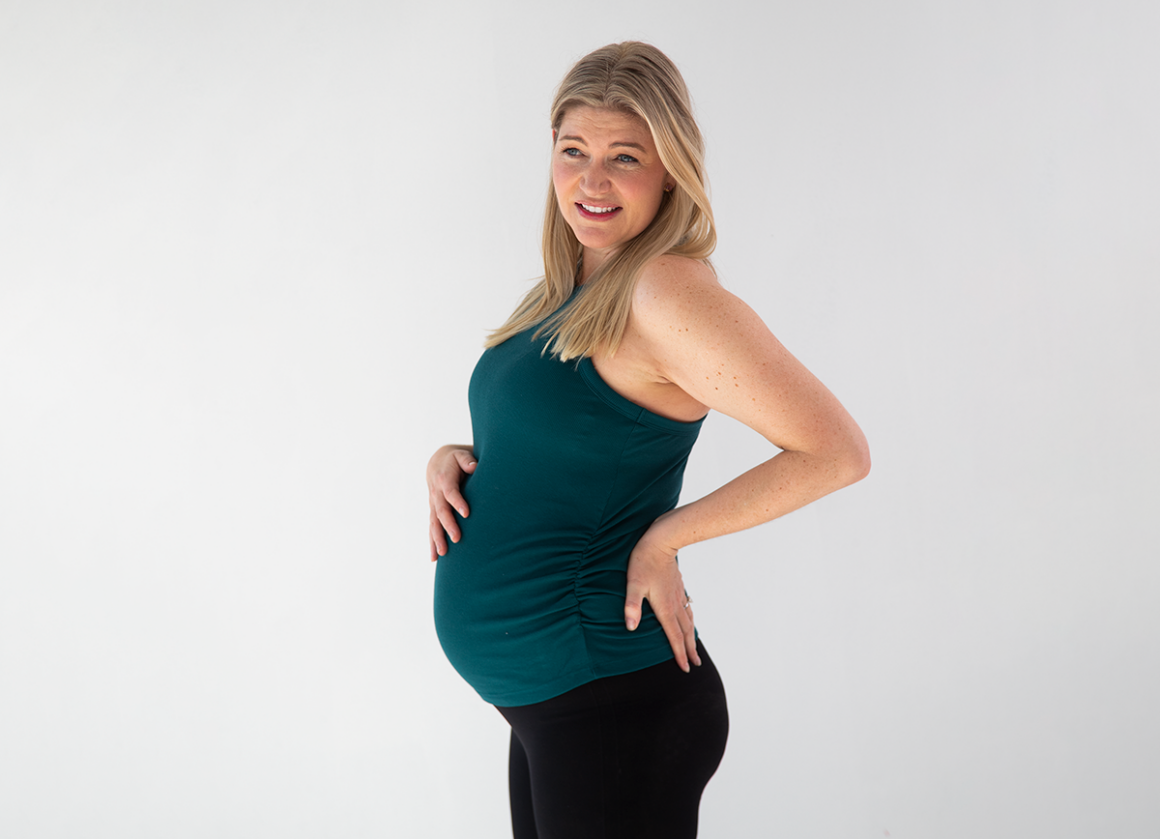Braxton hicks contractions are very common in pregnancy and are frequently referred to as “practice” contractions. They are named after a 19th century obstetrician, John Braxton Hicks, who made a ton of advances in the field of obstetrics!
While Braxton Hicks sounds like the name of a rugged country singer, it’s actually the term for fake or “practice” contractions during pregnancy. Your uterus can start playing tricks on you as early as the second trimester, but most commonly in the third as you approach your due date.
Braxton Hicks contractions occur in all pregnancies, however many women don’t realize it as they appear so close to their due dates.
Here’s the lowdown on Braxton Hicks Contractions and how to manage them.

When Do Braxton Hicks Start?
Braxton hicks contractions typically start in the third trimester, but some women report them as early as the second trimester. As you get further in your pregnancy, they usually increase in frequency and are just a natural part of your body preparing for labor. However, there are some things that cause increased uterine irritability, which can lead to an increased frequency or intensity of braxton hicks. Dehydration, increased activity, sex, and a full bladder are just a few of these.
 What does Braxton Hicks Feel Like?
What does Braxton Hicks Feel Like?
Braxton Hicks feel like the sensation is described as the random tightening or hardening of the uterus
The contractions are uncomfortable, yet not painful, shouldn’t increase in intensity or frequency, and will eventually subside.
Braxton hicks do not cause cervical dilation, though some believe they help to soften the cervix. They last for 30-60 seconds (though some can last for up to 2 minutes) and they tend to be irregular and infrequent.
Braxton hicks also do not increase in intensity or frequency. Most of the time they will start to taper off and then disappear altogether!
Labor contractions, on the other hand, usually last 60-90 seconds and once in active labor, will follow a regular pattern (i.e. coming every 5-7 minutes). Labor contractions will increase in frequency and intensity as labor progresses.
Contractions that intensify in pain and frequency could signal real labor. If you experience this and are a ways away from your due date (less than 36 weeks), contact your provider immediately.
What Causes Braxton Hicks?
The miracle of pregnancy is full of mysteries and Braxton Hicks is one of them. Medical professionals believe it’s your body getting ready for labor by toning your uterine muscles and increasing blood flow to your placenta, i.e. your uterus is training for the big day —love that story.
Closer to your due date Braxon Hicks are referred to as false labor and can help with dilation (the opening of your cervix) and effacement (the softening and shortening of your cervix).
Why am I having so many Braxton-hicks contractions:
- When the mother or the baby is very active
- If someone touches the mother’s belly
- When the bladder is full
- After sex
- Dehydration**
Source: American Pregnancy Association
When to be concerned about braxton hicks?
True Braxton Hicks are uncomfortable, yet painless, and don’t intensify or become more frequent; if this is your experience you are most likely fine. However, trust your gut (literally!) and check with your provider if you’re ever concerned. That’s what they’re there for.
How to Manage Braxton Hicks
If you are having braxton hicks contractions and they are bothersome, there are a few things you can do to help alleviate the discomfort.
- First, drink water! Your uterus is a big muscle, and when your muscles are dehydrated they start to contract.
- Next, empty your bladder. A full bladder can press up against your uterus and make it more irritated.
- A warm bath can help to relax your body and ease up these contractions too.
- Finally, change your position. Sometimes just moving from a standing to sitting position can help them dissipate.
Some like to practice the breathing techniques they have learned in their birthing classes while having braxton hicks, too!
Since your body is practicing for the big day, you should too! Get all your labor and delivery questions answered here.
Juna is your guide to TTC, pregnancy, and postpartum.
Click here to get your first week of Juna FREE.









